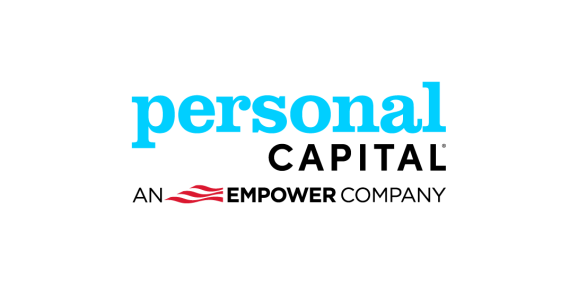
A company can reap many benefits from technology consultancies. A technology consultant can help you find remote working options or ways to streamline your business operations. This article discusses the various types of technology consultancies and the people skills necessary to succeed as technology consultants.
Working with technology consultants can bring you many benefits
Technology consultancies focus on the latest technologies. They help businesses make the most of these technologies. Companies can benefit from their services to increase productivity, efficiency, and profitability. They can also help businesses implement mobile platforms and central databases. These are complicated technologies and require careful planning. Consulting with technology firms can help save your company both time, and money.
For small businesses, hiring in-house IT departments can be expensive. An in-house team requires you to commit to office space, salaries, benefits, and other costs. This is why it's so important to work with a technology consulting firm. Your team can focus on their core functions and projects while they handle the expenses.

Different types of technology consulting
Technology consultants are available to many companies. They can help with various aspects of your business. These consultants have specific expertise and can help a business achieve its goals, manage and update new systems, as well as educate the company on current industry trends. Businesses must stay on top of technology to remain competitive.
A technology consultant is able to help companies with many things. This includes helping them develop custom software and infrastructure, help with risk mitigation, as well as helping them attract talent and streamline their processes. The skills a technology consultant has will vary, but most consultants will have at least some hands-on experience.
Technical consultants need people skills
Interpersonal skills are essential for anyone working in technology consulting companies. Clients are drawn to consultants who can solve problems. Write case studies to showcase your problem-solving abilities.
Also, it is important to be able to think critically. Technology consultancies are dependent on working in teams to resolve customer problems and meet their needs. It is important to be able and willing to work with others in a team. People with good teamwork skills get things done faster and have more support from colleagues.

Demand for tech consultants
There has been a significant increase in demand for technology consultancies, as the use of new technologies continues to increase. The Internet of Things (IoT) is a new trend in the industry, which has revolutionized many industries. There are more than eight billion connected devices currently in circulation. This technology will continue to increase in the coming years.
Companies are looking to hire technology professionals, and the demand for tech consultancies is on the rise. Traditionally, technology consultants needed to travel to clients to deliver services. But the COVID-19 pandemic has changed all that. Although travel requirements are reduced, technology consultants still experience high levels, which can sometimes be beneficial for some, but can cause stress for others.
FAQ
How can I become a successful consultant
It is important to identify an area of passion. Next, you need to establish relationships. It is crucial to learn about your clients and understand their needs. Finally, you must deliver results.
While you don’t necessarily have to excel at every task, you should be better than all the rest. You also need to have a passion for what you do. It's not enough to just say "I want to be a consultant." It's important to believe in your abilities and do what you love.
How did modern consultancy become possible?
Consultants were originally accountants who could help companies manage their financial affairs. Their skills in managing financial information led to them being called "accounting consultant". This role quickly expanded to include human resource management.
The French word meaning "to advise" in French is what gave rise to the term "consultant". This term was originally used by businessmen to denote someone who could give guidance on how to run an enterprise. Today, business owners still use the term consultant to refer to any type of professional advisor.
What kind of contracts can consultants sign?
Most consultants sign standard employment agreements when hired. These agreements include details such as how long the consultant will stay with the client, what he/she can be paid, and other important information.
Contracts also specify which areas of expertise the consultant will focus on and how the consultant will be compensated. The agreement might state that the consultant will conduct training sessions, workshops or webinars.
Sometimes, the consultant simply agrees that a specific task will be completed within a set time frame.
Consultants often sign independent contractor contracts in addition to their standard employment agreements. These agreements allow the consultant not only to work for himself/herself but also provide payment.
What happens when the consultant finishes his job?
After the consultant completes the work, s/he will submit a final report detailing the results of their work. This report includes the deliverables and project timelines.
The report will be reviewed and you can decide if the consultant met all your expectations. If not, you can either request changes or terminate the contract.
Is it possible to be a consultant?
Consultants are people who help you reach your goals by giving advice about how to make it better, faster, or cheaper.
Consulting can be a great way to solve problems, make informed decisions, and work with others.
Consultants are often hired for specific projects or tasks.
Consultants are usually paid hourly, daily or per project.
Why would a company employ a consultant to help them?
Consultants provide expert advice on how to improve the performance of your business. They aren't there to sell your products.
A consultant helps companies make better decisions by providing sound analysis and recommendations for improvement.
Consultants often work with senior management to help them understand how to succeed.
They also offer leadership training and coaching to ensure that employees are able to perform at their best.
They may be able to advise businesses on ways to cut costs, improve efficiency, and streamline processes.
Statistics
- Over 62% of consultants were dissatisfied with their former jobs before starting their consulting business. (consultingsuccess.com)
- So, if you help your clients increase their sales by 33%, then use a word like “revolution” instead of “increase.” (consultingsuccess.com)
- 67% of consultants start their consulting businesses after quitting their jobs, while 33% start while they're still at their jobs. (consultingsuccess.com)
- WHY choose me: Why your ideal client should choose you (ex: 10 years of experience and 6-week program has helped over 20 clients boost their sales by an average of 33% in 6 months). (consultingsuccess.com)
- According to statistics from the ONS, the UK has around 300,000 consultants, of which around 63,000 professionals work as management consultants. (consultancy.uk)
External Links
How To
What does a typical day look like for a consultant?
A typical day will vary depending on the type of work you are undertaking. You'll spend your time researching new ideas and meeting clients.
You will have many meetings where clients and you can discuss their issues. These meetings can be done over the phone or via email.
Also, proposals are documents that outline your ideas or plans for clients. These proposals should be discussed with a mentor or colleague before being presented to clients.
You will need to create content after all your planning and preparation. You might be creating articles, videos, editing photos, writing interviews, or designing websites.
Based on the scope and complexity of the project you may need research to obtain relevant statistics. For instance, you might want to find out how many people you have and if they are buying more than just one product or service.
After gathering enough information, you can present your findings to clients. Your findings may be delivered orally, or written.
After your initial consultation with clients, you need to keep in touch. For example, you might call them periodically to see how things are going or send emails asking them to confirm that they received your proposal.
This is a long process that can take some time. However, it is crucial to stay focused and to maintain good relationships.